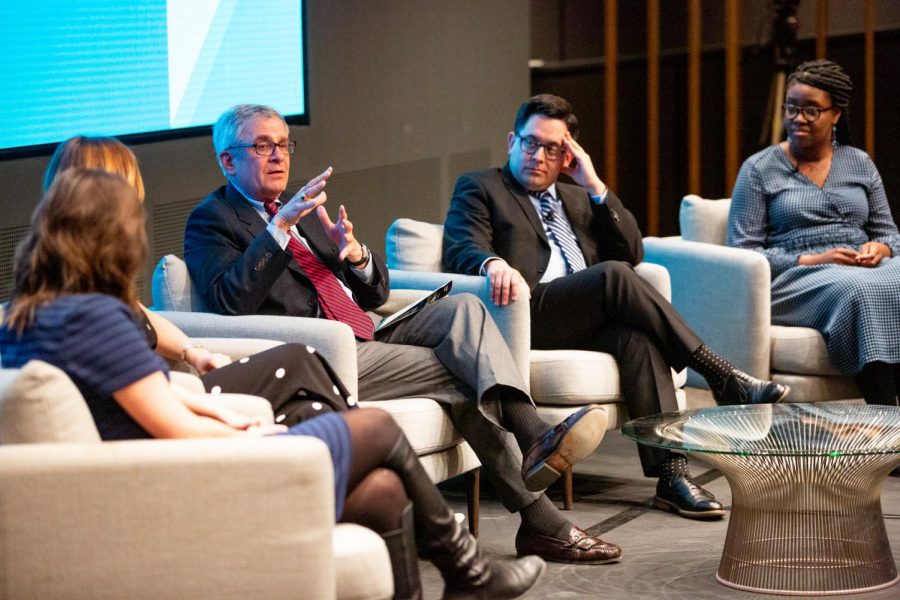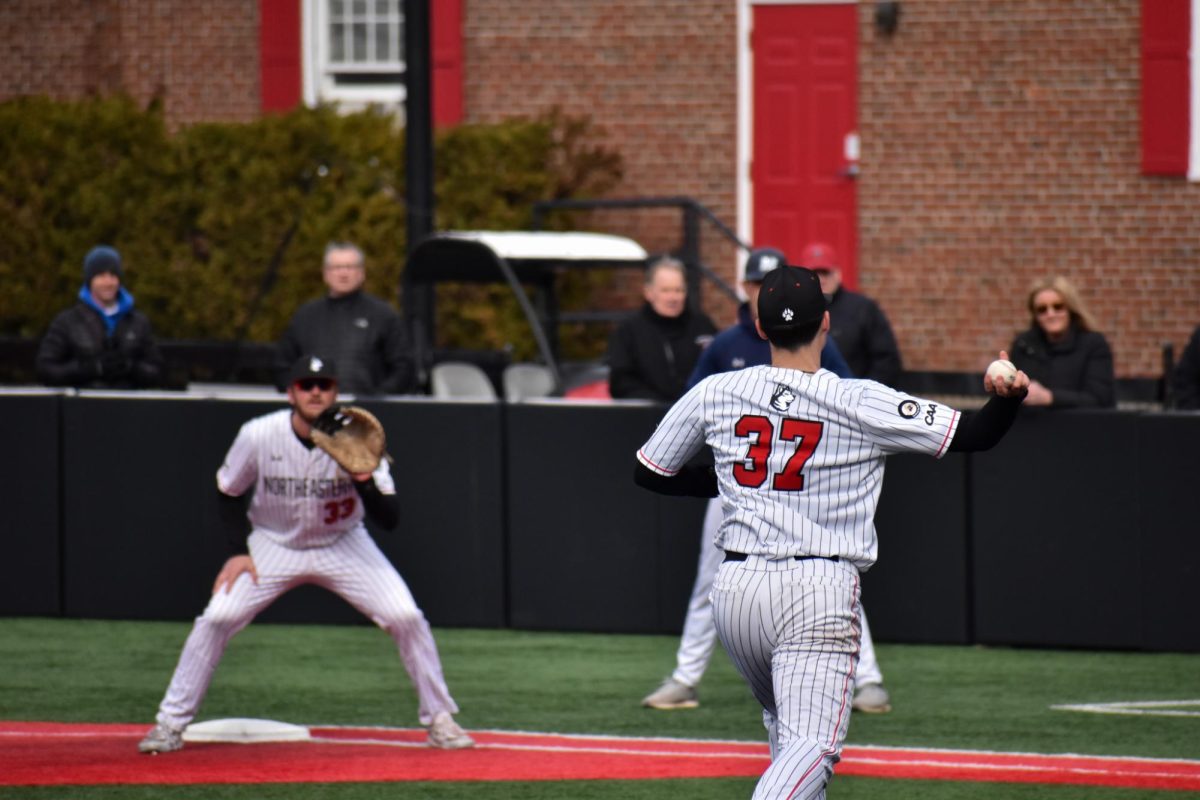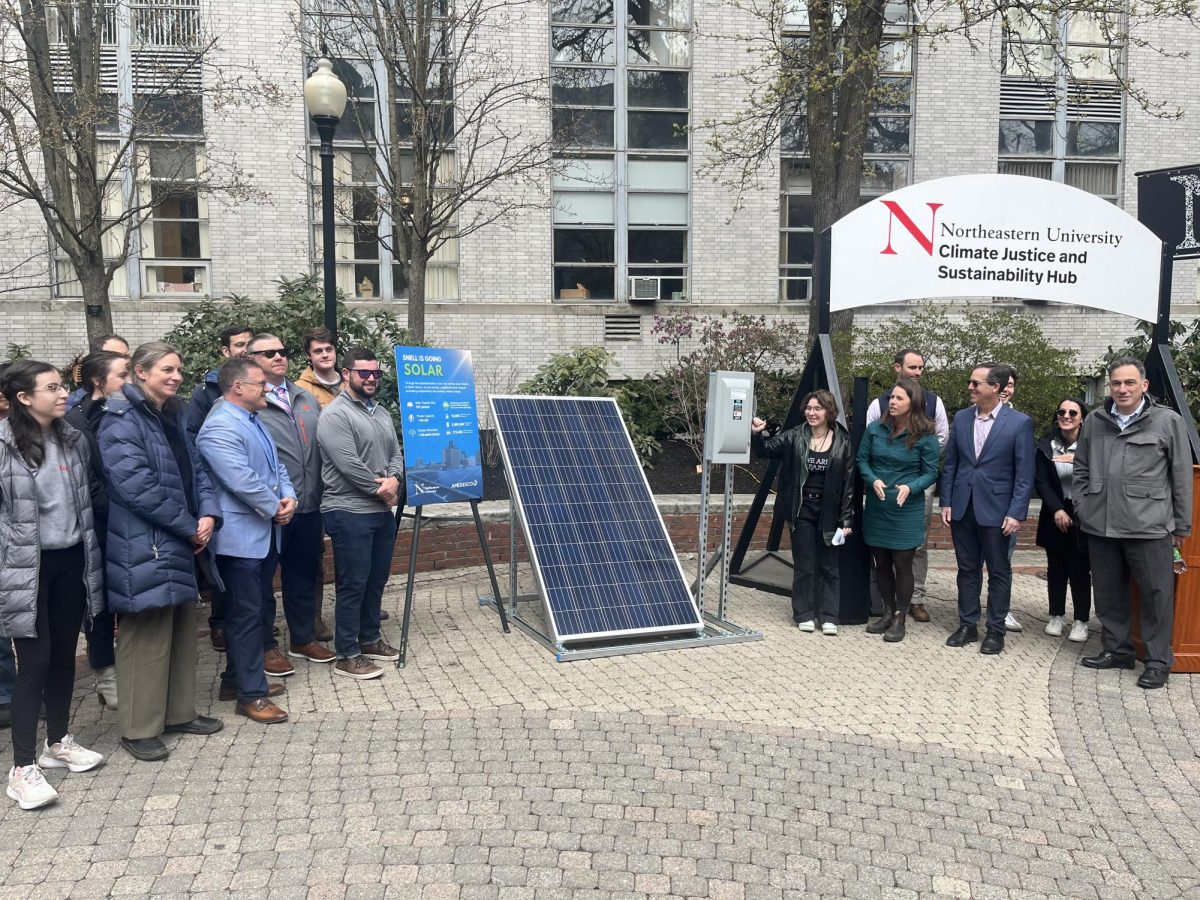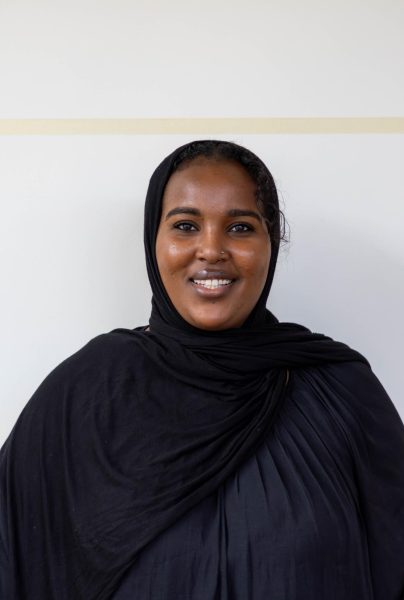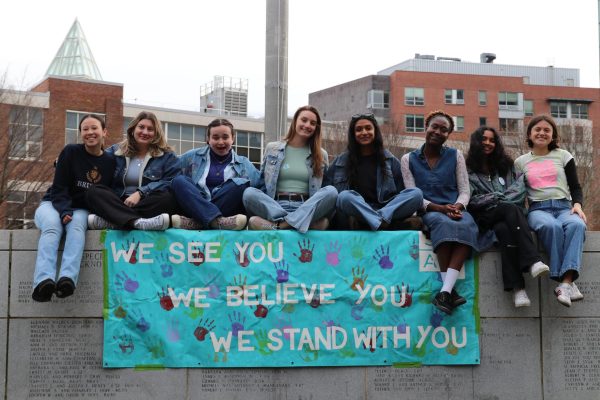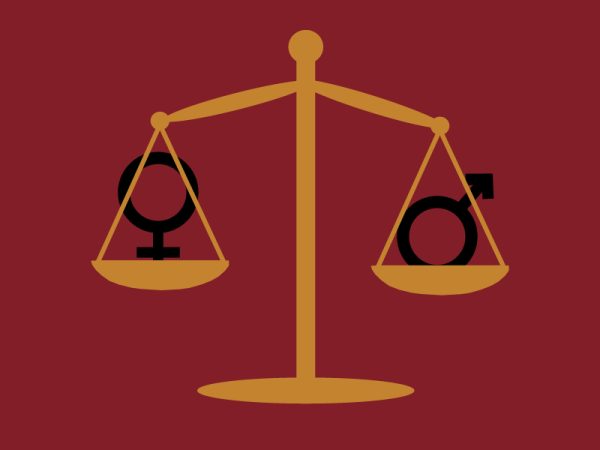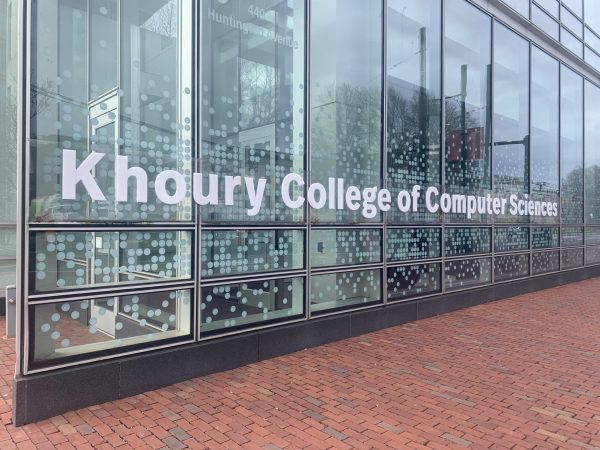Top political journalists share their experiences reporting on the White House
David Shribman speaks about what covering the White House entails on Monday.
March 20, 2019
Four Washington, D.C.-based political journalists shared their experiences reporting on the White House and navigating today’s polarized political climate as part of Northeastern University’s Civic Experience Series on Monday.
The panel was held in the Interdisciplinary Science and Engineering Complex. Speakers included Hallie Jackson, the chief White House correspondent for NBC News; Ed O’Keefe, a political correspondent for CBS News; Gabby Orr, a White House reporter for Politico; and Arit John, a congressional reporter for Bloomberg News.
NU students and professors from many departments attended the event. Students in majors with little relation to politics were there to learn about their role in the nation’s political dynamic.
“I wanted to learn more about covering media and information in today’s political climate in the United States,” said Daniel McCusker Alvarez, a first-year finance major.
Mike Armini, Northeastern’s senior vice president for external affairs, gave the opening remarks for the conversation. He began by gauging the age range of the audience by asking for a show of hands generation by generation. The majority of the audience consisted of those born in the 1990s and 2000s. In response to this, Armini said, “The question will be, as we head to the 2020 elections, will you use the power you have?”
David Shribman, a Pulitzer Prize-winning journalist, led the conversation. During his career, Shribman worked for the New York Times, the Washington Post, the Boston Globe and most recently the Pittsburgh Post-Gazette. He won the Pulitzer in 1995 while at the Globe.
In a 90-minute conversation, the journalists covered many topics, including fact-checking, the 2020 elections and, of course, President Donald J. Trump. The journalists provided insight into how their work bleeds into their personal lives. They deliberated on how they think the president feels about the media.
“He obviously doesn’t hate the media as much as he says he does, because he watches,” Jackson said during the discussion. “This president loves coverage.”
Orr added that not only does Trump enjoy the coverage, but he indeed needs the media. “He’s actually quite charming in the way he speaks to reporters when it’s just him and the press.”
The premise of the talk was for the audience to understand that how information is shared and the speed with which it is shared is changing the political dynamics of the country. While the fundamentals remain the same, political involvement has been amplified. Audience members were interested in how they could best handle these changes.
“I know a lot of times we can get biased news — the conservative side and the liberal side to everything,” said Damian Lee, a first-year political science and philosophy major. “Just to hear about it from the person who reports it is interesting.”
An important takeaway was the idea of consumer responsibility. In the age of “fake news,” readers — especially those who want to have a political voice — have a duty to fact-check and be conscious of the information that circulates social media. Even if something is true, certain rhetoric will make it more biased.
“I would always encourage news consumers, people who are politically active and informed, to be aware, certainly, of the biases of more opinionated publications,” Orr said.
John said that the next steps for young people will be to understand the power they hold when it comes to making political decisions.
“I think taking advantage of and appreciating the fact that in the Democratic primary, young voters — 18 to 29 year olds — are a major demographic, so people want to talk to you guys,”John said.
O’Keefe said the key to undergraduate students immersing themselves in the political climate in a helpful way is just to talk and read about future elections.
“I just think you have to take a little more responsibility and interest in it all,” O’Keefe said. “And I have found that a lot of younger voters are doing that. So, hopefully, it’s something that becomes so natural and habitual as young people that it will continue the rest of your life.”


